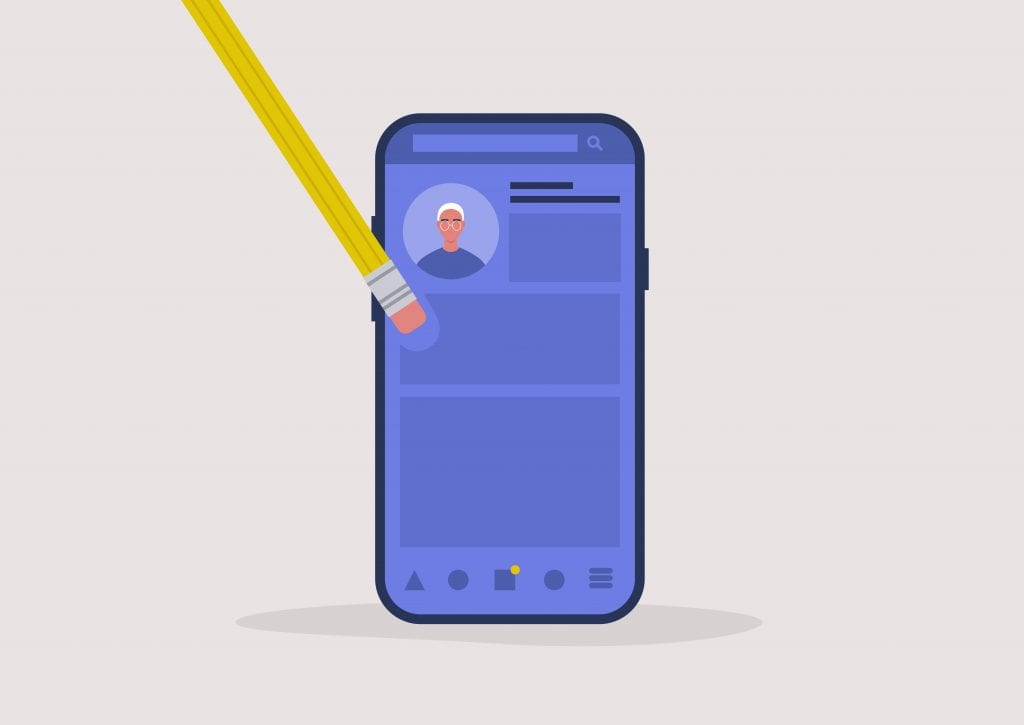If you’re a business owner or a digital marketer, you’ve probably heard about Apple’s iOS 14.5 privacy update, and you might be feeling concerned about how it will affect your business.
For iPhone users, the Apple iPhone iOS update means gaining access to the latest features including compact calls, picture-in-picture capabilities, updated Face ID technology and more. But for digital marketers and business owners, the iOS 14.5 impacts on data tracking permissions is a point of apprehension. So what do these changes mean for your business? We’re here to break it down and give you all you need to know about these latest policy changes.

What Did Apple Change in the iOS 14.5 Update?
So what did the new update actually change? Besides introducing new emoji characters, new Siri voice options and custom app icons, the most crucial (and controversial) impact iOS 14.5 has had is in regards to Apple’s AppTrackingTransparency (ATT) Framework. Apple devices with the update now require all applications to request and gain the permission of the iPhone user before tracking their activity outside of the app. This includes while using other apps and websites.
With the new update, Apple users are met with a pop-up when downloading a new app requesting permission for the app to track their activity. This gives them the chance to either opt in or out of having their data collected. Simply put, the update allows users to control when and how they share their data, who they share their data with, and on what apps and platforms.
The change comes after years of discussion surrounding privacy concerns and control over personal data. This is seemingly Apple’s response to the general public distrust of tech companies and social media platforms. And it seems the option to opt-out is already proving to be a much welcomed change; according to Flurry Analytics, only around 4% of iOS users in the US have opted in as of May 2021.
To Apple users, the update means increased privacy and control over the ads they’re shown across their mobile devices. For digital marketers, however, the fear is that decreased data tracking abilities will make it much more difficult for businesses to reach their target audiences and deliver relevant ads.
So let’s get to it; we’re here to look at how the update will impact Facebook advertising and Google Ads, and what you can do to navigate these changes.

How Will iOS 14.5 Impact Facebook Advertising?
The new update to Apple’s ATT Framework will affect Facebook Ads Manager in two key areas: ads retargeting and ads measurement and reporting.
Ads Retargeting
In terms of Facebook ads retargeting, the change affects these capabilities as businesses are no longer be able to retarget ads to users who have opted out of data tracking.
Essentially, retargeted campaigns will only be able to reach users if the business already has access to their contact information by way of email subscriptions or phone number retrieval. All in all, as more devices update to iOS 14.5, the size of your retargeting audiences may decrease.
Ads Measurement and Reporting
The second area affected in terms of Facebook advertising will be ads measurement and reporting. This is a function that typically allows businesses to measure online and offline conversions based on people-based metrics for ads served on Facebook and Instagram.
Needless to say, Facebook isn’t happy about Apple’s latest changes. Since the update earlier this year, Facebook has been extremely vocal about its disapproval of the changes made. So far, this has included running full-page ads in national newspapers, launching a website where small businesses can speak out about how the changes are negatively affecting them, and even testing a pop-up inside the Facebook app to encourage users to opt-in to data tracking.
During the company’s fourth-quarter earnings call back in January, Facebook CEO Mark Zuckerberg made a clear dig at the iPhone maker, stating, “Apple may say that they’re doing this to help people, but the moves clearly track their competitive interests”.

How Will iOS 14.5 Impact Google Ads?
Unlike the Apple vs Facebook feud, Google’s response to the iOS update is less intense despite also being forced to make some changes. Business owners and digital marketers can expect the new Apple update to impact the way they utilize Google Ads. The policy changes will similarly reduce visibility into key metrics that show how ads are driving conversions and will affect how advertisers value and bid on ad impressions.
While Google is certainly less impacted than Facebook by the new policies due to its lesser reliance on mobile ad revenue, Google Ads Manager users can still expect fluctuations in delivery and performance on ad campaigns that run on iOS. As well, they can also expect similarly decreased remarketing audience sizes and lower customer match rates.

What Can Digital Marketers Do to Navigate These Changes?
So what can you do in response to the iOS 14.5 update?
First thing’s first: don’t panic. While Apple’s pivot to increased user privacy seems intimidating, there are steps you can take to navigate these changes.
1. Verify Business Domains on Facebook
The first course of action you can take is to make sure to verify your business domains on Facebook. This prevents you from being marked as an ad account. Facebook recently mentioned that doing this will ensure the data received by a businesses’ pixels is accurately delivered to Facebook.
2. Facebook Event Prioritization
As well, you may benefit from setting up your event prioritization in Facebook. Decide which eight Facebook pixel events and custom conversions are the highest priority and the most valuable to your business. Once chosen, Facebook will only receive data from eight pixel events per domain. In other words, when users complete two or more events on a website, only the higher priority event will get reported, providing access to only the most valuable information.
3. API, First Party Data, and More…
Other steps you can take include implementing Facebook’s conversions API, relying on more first-party data collection and utilizing customer lists as well as lookalike audiences. By implementing these changes, keeping your business goals in mind, and staying on top of future updates to come, your business is sure to succeed despite this minor hiccup.
While iOS 14.5 poses some challenges for business owners, the update’s true impact on future marketing endeavours are currently unknown. In the meantime, digital marketers like yourself will simply have to do what they do best: adjust and adapt.
